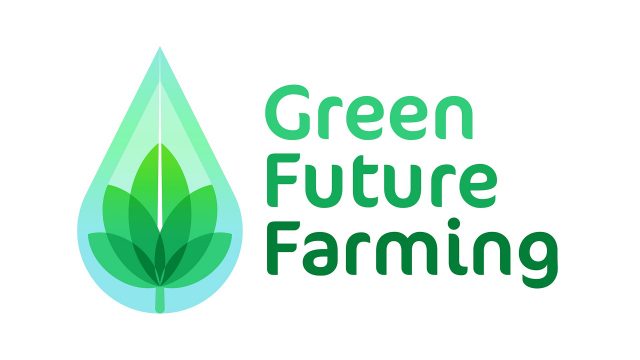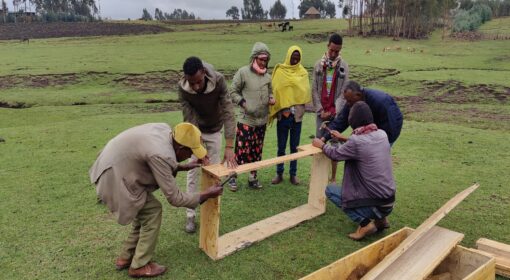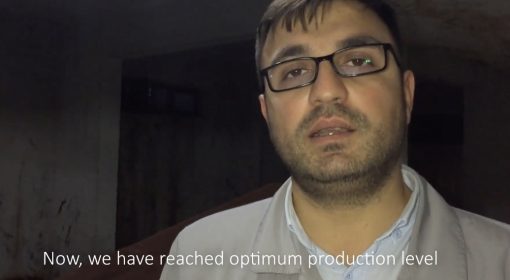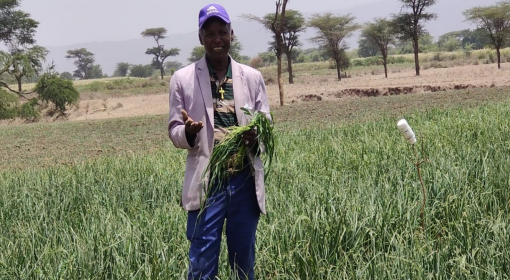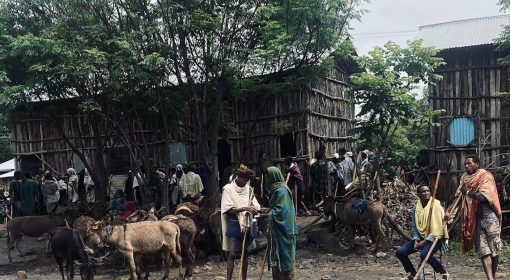By Sukru Esin and Frank van Steenbergen
May 27, 2020
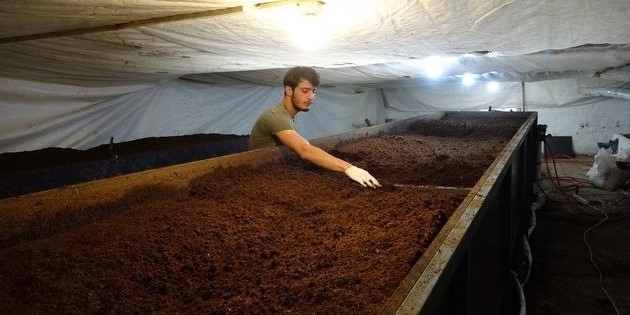
Vermiculture – the use of worms to transform waste – is a powerful way of producing fertilizer in a decentralized manner. Kitchen waste, cow dung, eggshells, coffee grounds, leaves, grass clippings, waste grains, paper, sludge – and then the magic of worms turning trash into treasure.
The worms eat almost everything – barring plastic or toxic waste. They then digest it into a high quality agricultural nutrient: vermicompost. The worms are put together with the material in aerated containers or trays. A drain may be provided to collect the liquid from the composting process. The containers should be placed in a sheltered, shaded place. The worms most commonly used are Eisenia foetida (red wrigglers), Eisenia andrei, and Lumbricus rubellus. They thrive and feed most rapidly at temperatures of 15–25 °C. Temperatures below 10 °C and above 30 °C may harm them. There are other worm species that are suitable for warmer climates.
Using worms to process waste accelerates the composting process and create a higher quality product than normal compost. Not only does vermicompost add nutrients to the soil, but it also improves soil structure and the ability of soils to retain water. Where water is scarce, less water will have to be applied when vermicompost is added to the soil.
The beauty of vermiculture is that it can be applied at any scale. In Turkey, for instance, vermiculture has become a widespread decentralized business, with numerous small producers earning a living from it.
The agriculture sector in Turkey is very dynamic and open to new approaches. The first vermicompost (solid and liquid fertilizer) production facility started in 2005. After this factory, many people started-up their own vermicompost producing facility. These were often small production lines in basements, backyards, barns, and terraces.
It is not difficult to get started in vermiculture. There is no minimum scale, and finding the source material/ waste is usually not difficult. No sophisticated equipment is needed in the beginning and there is much information on the internet. Besides, vermicompost is easy to sell. Apart from the compost one can also sell the worms to other people or alternatively expand one’s ownproduction facility.
All this has helped to spread the vermicompost business in Turkey in a very short period of time. In fact, growth is almost inherent to vermiculture. regions. For instance, one entrepreneur bought 10,000 worms and started feeding them waste. After three months the population became 20,000. In fact, the worm population will double every 3 months. At the end of year the entrepreneur will have 160,000 worms and population will keep growing every single day. Thanks to the internet and social media, young people can easily sell the worms and fertilizers.
Approximately 4000 amateur and professional people are in this sector in Turkey, working with around 150 million worms currently. Last year they produced around 30,000 tonnes of fertilizer.
What is remarkable is the openness and enthusiasm in the vermicompost business in Turkey. Whereas in many agricultural industries there is culture of secretiveness, vermi-compost facility owners of any scale are willing to show their production line to other people. They are organizing free tours and give free trainings to other people who are interested to get into the business. They share their experiences and knowledge online and answer questions by those who want to start up this business and are new in this sector, and need help. The vermicompost movement is helped by Facebook groups, YouTube channels, blogs, Instagram and Twitter. A culture of sharing prevails. All seem to realize that there is still so much to do and being one another’s competitor rather than compatriot in large vermicompost network would be the least sensible thing to do.
